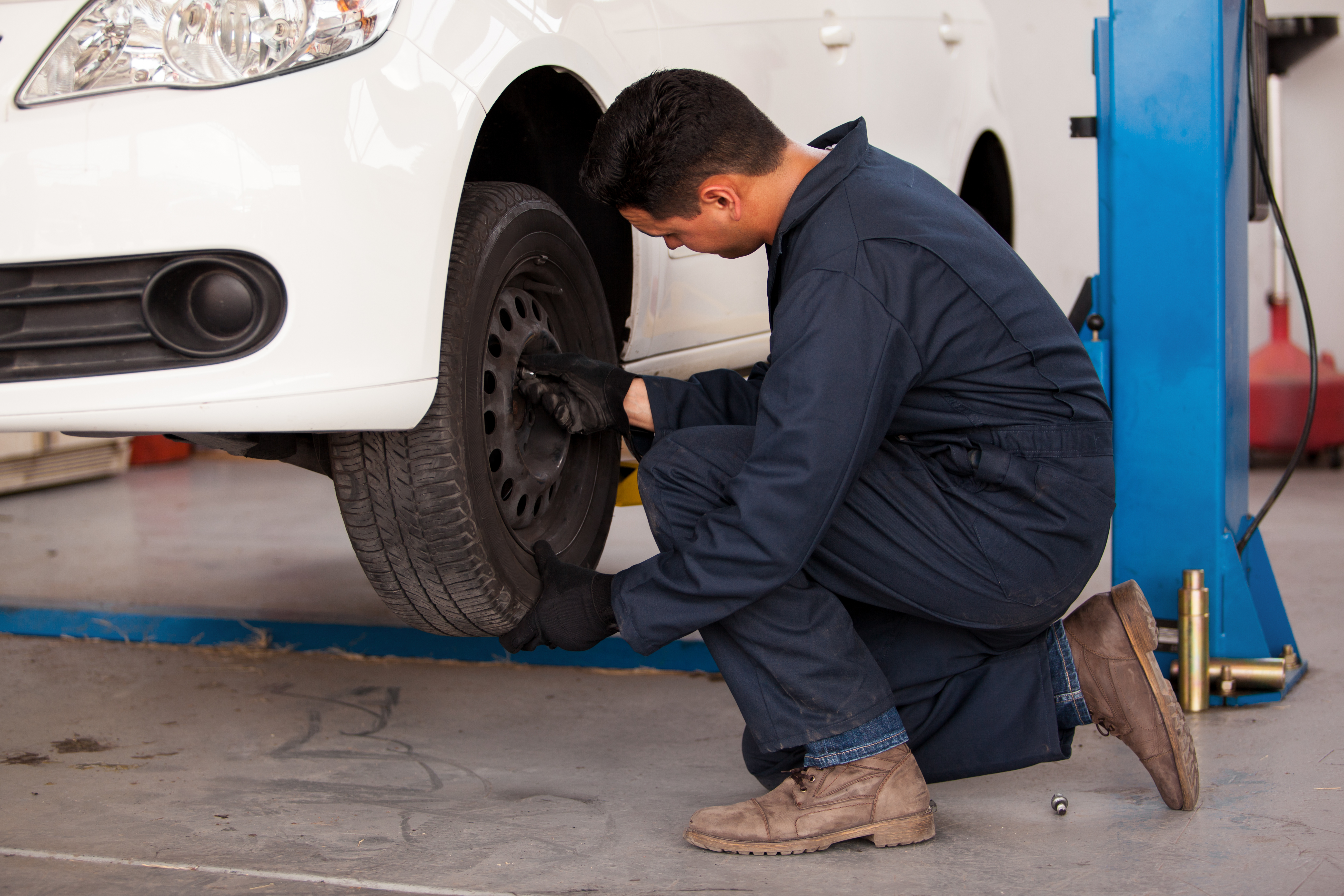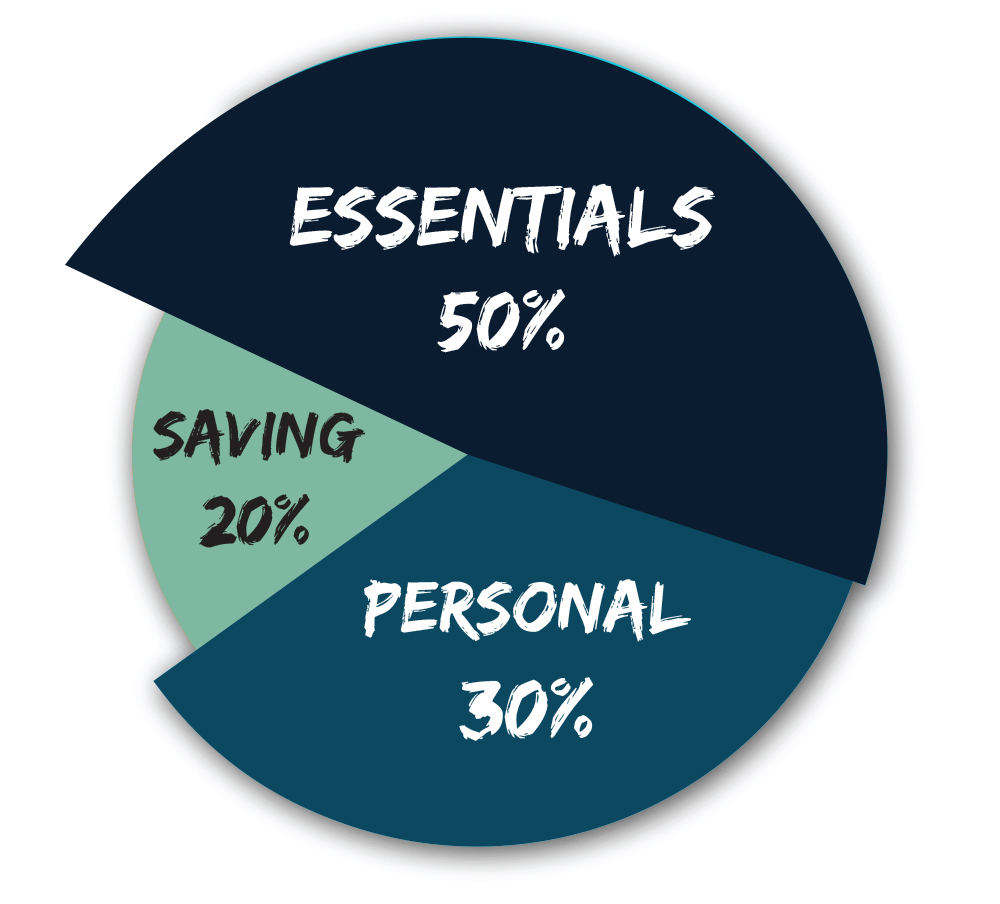Read This Before you Break Your Lease!
Many tenants find themselves in a situation where they need to or want to move out before the end of the lease term. If you are breaking your lease, it is important to keep in mind that a lease is a legally-binding document, and if the remaining months’ rent is not paid, the landlord can sue you and obtain a judgment (which may allow them to garnish your wages or take other collection actions against you). Losing your job, taking a new job in another location, not liking the place, or buying a house does not allow you to be released you from your lease. However, there are a few exceptional circumstances in which you may be able to have your lease invalidated, including:
- The landlord lied about a fact that he or she knew played an important part in your decision to rent the unit, and the fact could not be easily verified by you in advance.
- The landlord failed to keep the unit in safe and habitable condition.
- You are a victim of domestic violence or stalking.
- You or your spouse is in the military and received orders to move or deploy.
Rental laws vary by state, so it is a good idea to do research or speak to a lawyer or tenant organization about whether your situation allows you to invalidate the lease before you move out.
While breaking your lease does not release you from the responsibility to pay rent, you may not actually have to pay it all. You should talk with your landlord as soon as you know you will be moving out. In most states, the landlord is obligated to look for a new renter for the unit. You can also look for a new tenant yourself. Generally, the landlord cannot refuse to rent the unit to a qualified applicant and still hold you responsible for the rent. Once a new renter is found and starts paying rent, you are off the hook—with a caveat. If the landlord can only rent the unit for less than what you were paying, you can be held responsible for the difference in rent until the lease expires. For example, if you were paying $1,100 a month and broke the lease with 6 months left, and the landlord could only rent the unit for $1,000 a month, the landlord is entitled to $600 from you.
Some landlords also allow tenants to be let out of the lease by paying a fee. Landlords are generally only allowed to be compensated for what their actual loss is, so they cannot demand that you pay an arbitrarily-determined fee. However, if your apartment is located in a soft rental market and it is unlikely that a new tenant will be found soon, it may be to your advantage to pay the fee if it is offered. You may want consult with a lawyer or tenant organization before signing a lease-breaking agreement and paying the fee.
If you choose to break your lease, you will likely have some financial loss. However, careful planning on your part can help you keep the loss to a minimum.
6 Ways to Maintain and Save
When we’re looking to save money, the first thing most of us do is scrutinize our every purchase to see where we can squeeze out unnecessary spending. After all, a nip and a tuck here and there can add up to a bundle of savings over time! What many forget, though, is the cost savings that can result from proper maintenance of the things we already own – especially the really high-ticket items, like a home and car, which can be costly to repair and even more expensive to replace.
R. L. Polk reports the average person holds on to a new vehicle for just under six years. That’s longer than it was before the Great Recession, but with the average new car price topping $33,000, it makes good budget sense to find ways to extend the ownership period as long as possible. Just think of the boost it would be to your retirement savings if you bought just one fewer car in your lifetime, and instead directed that cash to an IRA or 401k account!
Here are some simple things you can do to keep your car and other stuff in good shape for the long haul.
- Get Regular Oil Changes
Be sure to read your vehicle’s owner’s manual to find out how often oil changes and other preventive maintenance is recommended. Nobody knows more than the manufacturer about what your car needs to continue running properly. Plus, not following the manufacturer’s recommended maintenance schedule could affect your warranty. - Check Tires Regularly
A flat tire’s not just inconvenient and expensive to replace. If not fixed promptly, a flat tire can lead to costly wheel damage. In addition to checking tire pressure monthly, have tires rotated, balanced and alignment checked regularly. Oftentimes, this regular maintenance is included in the warranty for new sets of tires. - Following Cleaning Instructions
If the tag says “dry clean only” believe it! Professional cleaning can add up, so you may be tempted to try laundering at home, but it’s a false economy if it means you ruin an expensive item of clothing. Instead, look at care instructions before you buy and decide then whether or not it’s a smart purchase. - Rotate Your Mattress
Some super-premium beds have different maintenance instructions, but if you have a standard mattress and box springs set-up, you’ll get longer life out of it by rotating it at least twice a year. If you notice sagging sooner, go with a three-month rotation schedule. - Replace AC Filters Regularly
A home’s air conditioning system is one of the most expensive items to replace if it goes bad. Twice-yearly maintenance is a prudent investment, and replacing filters regularly is really important since clogged filters can cause the system to burn-out prematurely. - Maintain Exterior Paint
Shabby and peeling paint doesn’t just make the outside of a home look unkempt. A proper paint job protects surfaces from the sun and weather, and helps ensure that cracks are repaired, preventing leaks and helping to keep destructive pests like termites at bay.
5 Ways to Establish Credit

When it comes to getting a credit card, qualifying is actually one of the easiest parts of the process. Establishing a positive credit record, however, requires dedication and patience.
Whether you are new to credit or are trying to “clean up” past mistakes to reestablish a favorable record, you may encounter a frustrating paradox: you must have and use credit to create a credit history, yet many financial institutions are reluctant to extend credit to someone without an established record. But don’t despair – there are several good remedies for both situations.
A Secured Card
An excellent start is a secured credit card. You are granted a credit line based on a percentage of a cash deposit you make to your financial institution. Because deposits are usually low, so too will be your credit limit. Application and annual fees for secured cards are often higher then those associated with unsecured credit cards.
The Retailer’s Card
Consider a local retailer’s credit card. Their criteria is often less rigorous than larger credit issuers. Be sure they subscribe to the major credit reporting agencies though – if not, you won’t be establishing a credit history.
A Co-Signer
Another option is having someone with a positive credit record co-sign an account for you. This requires a great deal of trust on the part of the co-signer – if you fail to pay, he or she is responsible. You could end up jeopardizing a relationship as well as a credit record.
Review Your Credit Report
Finally, if you have damaged credit, you might need to rectify the past as you’re building your future. Paying old debts and correcting errors on your credit report as soon as possible might be the way to go.
Pay off Your Debts
Once you have a credit line, establish a good history by using it responsibly. Keep balances low, always pay on time, don’t pursue unnecessary credit, and stick with a few good credit instruments of various types.
Buying Vs. Leasing a Car

There are big differences between buying and leasing. Typically, if you were to purchase a new car, you would make a down payment and finance the remaining cost. At the end of the term, the car would be yours. Leasing is essentially renting, with your payment going towards the car’s depreciation. If the lease includes a purchase option, you may buy it at the end of a specific time period.
So which is better? That depends on your individual situation and needs. You will have to decide for yourself by analyzing the advantages and disadvantages of each:
Leasing Advantages
There are short-term cost advantages to leasing. The monthly payments on a leased car are usually far less than on a loan – even for a luxury model. The down payment usually works out to be less than what you would pay for a bought car as well. Because the typical lease is for three years, most repairs are covered by factory warranty. Sales tax is cheaper too, as you only pay it on the financed portion.
An attractive feature of leasing is the ability to drive a new car every few years. You never have to go through the hassle of selling it; you just turn it in at the end of the term.
Leasing Disadvantages
While the payments are often reasonable, you never gain equity in the car. If you were to buy it at the end of your contract, it would cost you a lot more than if you had just bought it in the first place.
Leases are restrictive. If you exceed the yearly mileage limit you can be assessed an extra charge. You must take good care of the car as well, as any nicks or dings can be considered “wear and tear” and could cost you.
Comparing lease offers can be very confusing, making it hard to know if you got a good deal. And you will find it difficult to get out of your lease early if you want to – a problem if your driving needs or financial circumstances change.
Buying Advantages
When you buy a car, it’s yours. You can customize it and drive it as hard and far as you want, penalty-free. Rather than having infinite payments, buying means you will eventually pay the car off. Once paid off, if you want to sell it you can do so at any time, as Erik Fortier you are not locked into a contract.
Buying Disadvantages
Down payments on bought cars can be substantial. Monthly payments are usually higher than a leased car, and once your warranty expires, you will be responsible for the maintenance costs. When you want to sell it (or trade it in) you will have to go through the hassle of doing so. And, as an investment, new cars depreciate rather than appreciate.
8 First-Time Home Buying Mistakes

Buying your first home can be exciting and nerve-racking at the same time. However, it is always better to start your home hunting with an idea of the mistakes you should avoid.
Mistake 1: Using the same agent as the seller.
How to avoid it: You may be told that you can save money by using one real estate agent for the transaction. However, the reality is that you are much better served by having someone looking out for ONLY your best interests.
Mistake 2: Buying points without considering how long you will stay in the home.
How to avoid it: When you buy points on a mortgage, you lower the interest rate on the loan by providing more money up-front. This certainly makes sense if you are planning on staying in the property long-term and will save a large amount of money by paying less interest over that time frame. However, if you plan on moving within a few years or are buying the home with the idea of selling it relatively quickly, it probably doesn’t make much sense to buy points.
Mistake 3: Using an adjustable rate mortgage to buy before you are ready.
How to avoid it: One of the reasons for the housing crisis of the late 2000’s and early 2010’s was that homebuyers were being encouraged to buy homes they couldn’t afford using a low initial interest rate that they could theoretically renegotiate as the value of the home increased. The problem came when many of those homes didn’t increase in value. Gambling that you will be able to refinance a mortgage or sell the home before the rate increases is not only risky, but puts you in a very stressful position as a homeowner.
Mistake 4: Including closing costs in the loan.
How to avoid it: The lender may provide you the option of including the closing costs in the mortgage loan if you are not able to meet this expense at the time of closing. However, financing these costs means paying more since you will have to pay interest too. You are better off saving up for closing costs ahead of time since this will cost you much less in the long-run.
Mistake 5: Being unaware of service contracts for your home.
How to avoid it: Hot water heater broken? Before you shell out the cash to have it fixed, check the paperwork to see if repairs are covered in a service contract included in the loan agreement. You don’t want to pay out of pocket for something that is already covered.
Mistake 6: Thinking a passing home inspection grade means no worries.
How to avoid it: The best home inspectors will give you notes on possible future trouble areas even if they are working fine right now. However, this isn’t always the case. Don’t assume that a home inspector signing off on a property means that there won’t be any major expenses in the near future. Assuming that repair costs will spring up eventually and preparing accordingly is the best practice.
Mistake 7: Not planning to have HOA fees.
How to avoid it: With all the costs popping up as you move through the buying process, it can be easy to forget about Homeowners Association Fee. Unless you have money to burn, a successful home buying experience is going to involve understanding first what you can afford and then the total monthly cost of the property you are looking at—including potential increases.
Mistake 8: Failing to plan for potential increases in insurance or property taxes.
How to avoid it: With a fixed-rate mortgage, you might think your mortgage expenses are locked-in. But think for a moment of parts of the country hit by natural disasters in the past few years. Many homeowners in these areas have seen dramatic increases in their homeowners’ insurance as a result. Hopefully you won’t be hit by any cataclysms, but even if the odds of this are low, it’s still wise to have some money set aside in a housing fund to cover increased costs.
Avoid jumping into your new home without being completely informed of the responsibility you will take.
8 Amazing Ways to Avoid Binge-Shopping

It would great if we all made only rational, well-analyzed spending decisions. But none of us are robots. We’ve all made emotional buys at one point or another. Think back on things you bought because you had a rough day at work. Or maybe it was an argument that got you agitated. No matter the cause, purchases made on feelings instead of frugality can be rough on your bottom line. Here are a few ways to soothe yourself without draining your funds
1. Create “me” time
A In a lot of cases overspending happens because it gives you a sense of control over your surroundings. Instead of trying to grab control with money, take control of your time and your surroundings. Whether that means gifting yourself with a nice hot bath or time to work on that tinkering project in the garage, commit to unwinding on your own terms.
2. Connect with a loved one
Loneliness is another emotion that can turn you into a frenzied consumer. A call to a relative you haven’t spoken to in a while or even a spontaneous get-together with a friend can remind you of the wonderful bonds in your life.
3. Volunteer
It may sound strange, but in many cases the best way to help yourself is to work at making someone else’s life better.
4. Exercise
Scientists believe that for certain people splurge shopping releases the same amount of endorphins in the brain as skydiving. So if you are one of those people who gets a real charge out of filling a shopping cart, consider alternatives like going to the gym, walking or riding a bike to get your endorphin rush (if the plane and parachute are not available).
5. Enjoy nature
One of the best ways to get away from your problems is to, well…get away from them! Leave your connectivity behind and get back in touch with a favorite out-of-the-way spot.
6. Read
A little healthy escapism is always good for taking your mind off your day-to-day worries. Whereas passive media like television usually serves more as just a casual distraction, diving into a good book forces you to actively engage in the story.
7. Play
Be it with children or a pet, having some silly fun can shed a lot of stored up tension you might otherwise look to purge with shopping.
8. De-clutter
Because coming home to a place full of stuff can add to your stress level, give yourself a present and a future of increased serenity by hunting for items that can be donated or sold online or at a garage sale.
What is the 50/30/20 Rule?
The 50/30/20 Rule is the simplest way to create a budget. It helps you keep your spending aligned with your savings goals. This very convenient, especially if this is the first time you try to organize your finances. Once you know how to achieve a balanced budget, you can further customize this rule around your unique expenses and goals.
50% of Your Income Goes to Essentials
Start by setting 50% of your income to pay essential items such as rent, utilities, car transportation and housing. This might be a little high in the beginning but once you get the hang of it you will be able to customize your budget to your needs. For instance, some people live in high-rent areas, yet can walk to work, while others enjoy much lower housing costs, but transportation is far more expensive.
30% of Your Income Goes to Your Lifestyle
Your lifestyle is important and although you may need to sacrifice some luxuries, you need to splurge once in a while. Therefore, 30% of your income goes to personal expenses like travel, dining out, cable, and even expensive coffee. If you travel extensively or work on-the-go, your cell phone plan is probably more of a necessity more than a luxury. It is up to you to decide which items are consider personal and which you should cut-off.
20% of Your Income Goes to Savings
The last step is to designate 20% of your income to savings. This is for your future, for everything unexpected that may come your way. This is the category you should think about after your essentials and before feeding your lifestyle expenses. It is your “get ahead” section and you must give it importance.
You don’t need to make a lot of money to budget properly. The 50/30/20 rule is only the beginning, you will customized this rule when you become an expert at budgeting.
How to Make the Best Out of Your Tax Return

No one likes paying taxes, and there’s no reason to pay more than you should in any given year. One of the best ways to make sure your tax returns ripped the most profit is by investing it. To make your money grow.
- Invest in CD’s
CD’s are forms of investment that take time to mature and grow. If you’re looking to save money for your kid’s college fund this is a good way to do it. This will be put aside to grow and mature until you have made some profit. - Increase your 401k referral
Of course you can’t put your refund into your 401(k) but you can supplement your income with it while you increase your referral. This is especially important if your employer matches your refund amount. - Put it as a down payment for a property
Owning your own place is always better than paying someone else’s mortgage. Save as much as you can and purchase your own home. If you ever move chances are you will have some equity. - Lower your debt
You don’t have to spend your entire tax return paying your overdue debt. However, paying some debt should give you some financial stability. Lower your debt as much as you can and start from zero.
Remember, be wise and make money out of your tax return. If you are currently a BrightStar Credit Union Member, enjoy a discount when you file with Turbo Tax.
3 Simple Ways to Earn a Little Extra

Sometimes your full-time jobs are not enough to pay the bills, save, and have fun. Sometimes a paycheck is only enough to make ends meet. Sure, you can always get another part-time job or look for higher paying job. However, when you have conflicting schedules and a family having an extra job isn’t so easy.
What are some ways to earn a little extra cash and keep enjoying your free time?
- Pet Sitting There are many websites where you can sign up to be a pet sitter. Yes, a pet sitter. Not only do you get to enjoy the company of cute fluffy creatures, you also get to spend some time in the sun. If you do this, plan accordingly. For example, if sign up to pet sit on a Sunday you’ll have company to watch the game and exercise early in the morning. TIP: Pet sitting is in high demand in South Florida. Take some time to look into it.
- Clean your home, and sell your unwanted items online: If you have unused –or gently used items– try selling them. Liberating yourself from all that clutter, will feel very rewarding. Remember, one man’s trash is another’s treasure.
- Participate in surveys or focus groups: Some marketers and research firms offer cash for participating in focus groups. This is not a lot of money, but $10 to answer 10 questions online buys you lunch.
If you ever find yourself in need of a little bit of cash, consider these methods.
Enjoy!
How Can You Reduce Your Home Ownership Cost?

Owning a home is rewarding but it can also be costly at times. You have to be able to keep up with air conditioner repairs, appliances breaking down, and pipes that can sometimes burst. The Bureau of Labor Statistic reported that an average homeowner paid $4,808 in mortgage principal and interest in 2013.
The good news is that home ownership costs aren’t fixed and we have a few tips that might help you.
- Buy a Smart Thermostat
In Florida AC is not a luxury, is a necessity. Sometimes it gets so warm outside it is easy to feel discomfort when all you think of is cooling off. In order to help you reduce your AC cost, try a smart thermostat. It can adjust to your household routines, temperature preferences, external weather conditions, and can even track your location.
Why is this useful? With a thermostat this sophisticated you can divide your days into blocks and set desire temperatures for each. For example, you can adjust your settings to a higher temperature while you’re at work and lower them when you return from work automatically. A smart thermostat can trim cooling cost by 15%.
- Switch to low flow fixtures Although water is not as expensive as electricity, saving water can save you money. Low-flow faucets reduce tap water usage by up to 30%. Low-flow toilets can save a family of four around $110 a year depending on home size.
- Insulate Hot Water Pipes According to the Department of Energy, insulating your hot water pipes can reduce your electricity or gas bill by $12 annually. Insulating your hot water pipes is inexpensive—especially if you have duct tape at home.
- Unplug Idle Electronics Every time you leave your TV, cable boxes, computers and other small electronics plugged you drain power and drive up your electricity bill. There are devices that can help you power off devices without having to unplug them. Such as the Bits Energy Smart Strip, this can cost up to $40 and help you reduce your light bill on a monthly basis.
These tips will not save you thousands of dollars in home ownership cost. However, it can save you a few hundreds and every little bit helps.









